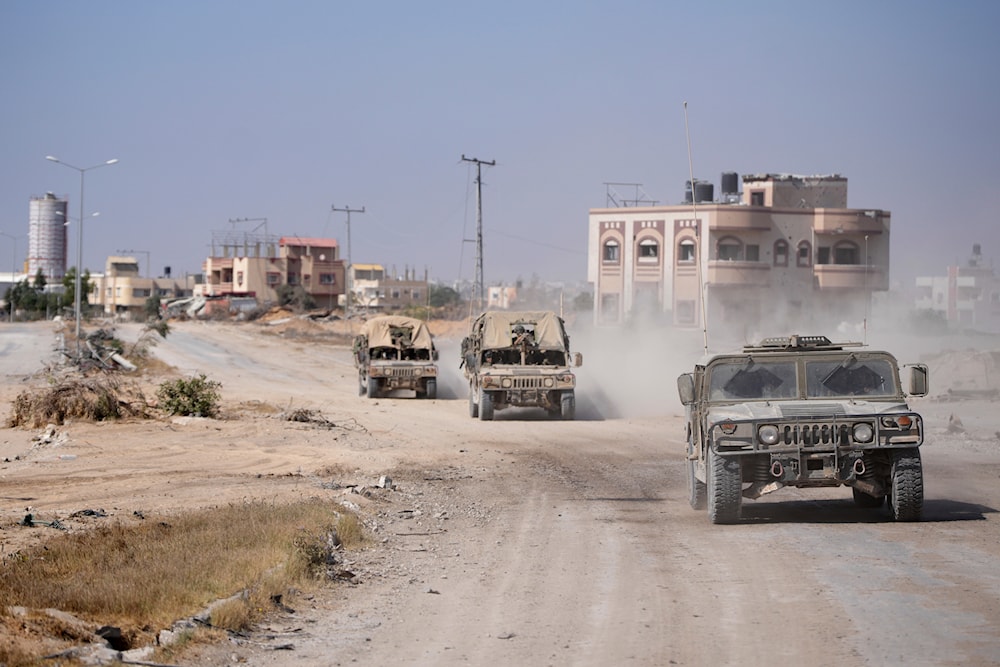PTSD forces 1,100 Israeli occupation soldiers out of service
Over 1,100 Israeli soldiers have been discharged due to PTSD since October 2023, reflecting a deepening mental health crisis amid the Gaza war.
-

Israeli occupation army vehicles transport a group of soldiers and journalists inside the southern Gaza Strip, Sunday, June 8, 2025 (AP Photo)
The psychological toll of "Israel's" ongoing war on Gaza continues to manifest within the ranks of the Israeli Occupation Forces (IOF), as more than 1,100 soldiers have been officially discharged due to post-traumatic stress disorder (PTSD) since October 2023.
Israeli military figures indicate that between October and July, 1,135 active-duty soldiers, reservists, and career service members were removed from their positions, ranging from frontline combat roles to rear-line support, because of trauma-related psychological conditions.
With plans advancing for a large-scale ground operation in Gaza City and continued mass mobilization of reservists, the psychological burden on soldiers is mounting. Commanders are increasingly vocal about the strain their forces are enduring, particularly among those deployed repeatedly to combat zones.
Surge in suicides among reservists
This mental health crisis is mirrored by a significant increase in suicide cases among occupation soldiers. According to official figures, 21 soldiers took their own lives in 2024 alone, the highest number in over a decade. So far in 2025, at least 17 more suicides have been reported, most involving reservists recently returned from frontline deployments.
The case of Daniel Edri, who died of suicide after struggling for months with war-induced trauma, has become emblematic of the broader systemic failure to provide adequate care for affected personnel. His death reignited public and institutional debate over the quality of post-combat mental health care in the entity.
Institutional response
To address the escalating issue, the IOF and the Ministry of Security were forced to expand the Combat Stress Response Unit. New branches are being established in the northern and southern regions, and a national center is being developed to provide holistic care for soldiers and their families. The center is set to offer psychological services, medical care, and long-term rehabilitation support.
Historical trends
The surge in mental health cases and suicides is unprecedented in scale in the entity. Since the war on Gaza began, over 26,000 IOF personnel have sought mental health care, with approximately one-third diagnosed with PTSD. Compared to earlier conflicts such as the 2006 war on Lebanon, where only around 2% of soldiers were diagnosed with PTSD, the current figures reflect a dramatic surge.
Reservists, in particular, report heightened symptoms. A recent study found that 12% of reservists who served during the ongoing Gaza war reported PTSD symptoms, a sharp increase from past operations. Continuous exposure to trauma, repeated deployments, and witnessing the death or injury of comrades are reportedly among the key drivers of this trend.
In total, since October 2023, over 450,000 reservists have been called up, a record in "Israel’s" history. At present, approximately 130,000 remain actively deployed, alongside most of the IOF’s 100,000 standing soldiers. With such large-scale mobilization, the psychological toll is likely to deepen.

 3 Min Read
3 Min Read










